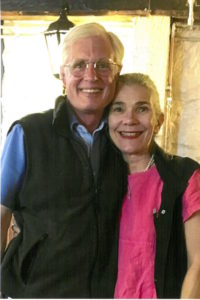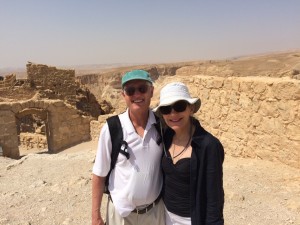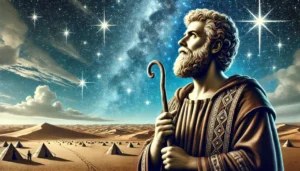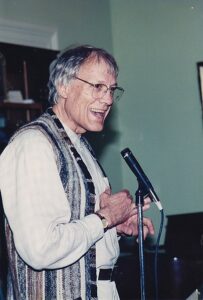Dear friends:
This afternoon, I researched and wrote about the Ukraine conflict using artificial intelligence. If your social media feed is like mine, you are inundated with politically motivated views on the current situation. I decided to examine the situation at a slightly deeper level. I do not claim originality or deep personal understanding. However, I can tell you that every inquiry I made requested a “balanced view.” I am trying to educate, not provoke or support a particular view, though I believe continuing the current war is unwise. I am not smart enough to know how that should be accomplished.
 The current conflict in Ukraine stems from a long history of geopolitical tensions, major power rivalries, political corruption, and domestic struggles. Since the collapse of the Soviet Union in 1991, NATO’s eastward expansion has been a contentious issue among Russia, the United States, and Western Europe. Before the conflict began, several U.S. officials warned of its potential to provoke Russia. These warnings underscored Russian fears and the geopolitical risks of bringing the NATO military alliance closer to Russia, including the possibility of destabilizing Ukraine and inciting Russian military responses.
The current conflict in Ukraine stems from a long history of geopolitical tensions, major power rivalries, political corruption, and domestic struggles. Since the collapse of the Soviet Union in 1991, NATO’s eastward expansion has been a contentious issue among Russia, the United States, and Western Europe. Before the conflict began, several U.S. officials warned of its potential to provoke Russia. These warnings underscored Russian fears and the geopolitical risks of bringing the NATO military alliance closer to Russia, including the possibility of destabilizing Ukraine and inciting Russian military responses.
Early Warnings: George Kennan and the 1990s
One of the earliest and most significant warnings came from George Kennan, the architect of the Cold War containment policy. In a 1997 New York Times interview, Kennan described NATO’s eastward expansion as “the most fateful error of American policy in the entire post-Cold War era.” He cautioned that it would exacerbate Russian nationalism, revive Cold War tensions, and undermine efforts to incorporate Russia into a cooperative European security framework. Kennan’s critique wasn’t speculative—he predicted that moving NATO to Russia’s doorstep would be perceived as encirclement, a notion echoed by Russian leaders ever since.
During the Clinton administration at the State Department, similar concerns arose. When NATO welcomed Poland, Hungary, and the Czech Republic in 1999, Deputy Secretary of State Strobe Talbott acknowledged Russian objections, stating in his memoir that Moscow saw NATO as a Cold War relic aimed at them, despite the dissolution of the Warsaw Pact. Talbott and others questioned whether the West had a convincing answer to Russia’s question: if they had abandoned their bloc, why hadn’t NATO done the same? This internal skepticism indicated a recognition that expansion could be perceived as needlessly antagonistic.
William Burns: A Consistent Voice of Caution
Perhaps the most frequently cited warning came from William Burns, who served as the U.S. Ambassador to Russia from 2005 to 2008 and was the CIA Director under Joe Biden. In a February 2008 classified cable titled “Nyet Means Nyet: Russia’s NATO Enlargement Redlines,” Burns cautioned that Ukraine’s potential NATO membership represented a significant red line for Moscow. He stated that it “could potentially split the country in two, leading to violence or even, as some claim, civil war, forcing Russia to decide whether to intervene.” Burns emphasized that this perspective was not limited to Vladimir Putin—hostility toward NATO expansion was “almost universally felt across the domestic political spectrum” in Russia, even among anti-Putin elites. Additionally, Burns issued an early warning. In 1995, as a political officer in Moscow, he cautioned that Russian opposition to NATO’s eastward expansion was deep and widespread. Later, as ambassador, he described NATO expansion as “premature at best and needlessly provocative at worst,” predicting in 2008 that Ukrainian aspirations for NATO membership could destabilize the region and compel Russia to act. His warnings proved prescient with Russia’s 2014 annexation of Crimea and the 2022 invasion, events directly linked to Ukraine’s Western orientation.
Robert Gates, Deputy National Security adviser during German reunification talks in 1990 and later CIA Director (1991–1993), criticized NATO’s eastward push in his memoirs noting that the U.S. “pressed ahead with expansion” despite assurances to Soviet leaders like Mikhail Gorbachev that NATO wouldn’t grow beyond Germany—a claim debated but supported by declassified documents showing Western leaders discussing limits on expansion. Gates called this a missed opportunity to build trust with Russia post-Cold War.
Jack Matlock, the last U.S. Ambassador to the Soviet Union (1987–1991), claimed that assurances were given during 1990 talks that NATO wouldn’t expand eastward beyond a unified Germany. In later writings, he argued that breaking this perceived promise fueled Russian resentment and set the stage for conflict. While NATO and some U.S. officials deny any formal pledge, scholars like Mary Sarotte, citing archival evidence, suggest that Gorbachev was “led to believe” that expansion wouldn’t happen—a nuance that mattered to Moscow.
CIA Involvement and Escalation Risks
The alleged CIA role in Ukraine added another layer of tension, amplifying Russian fears of Western encroachment. Reports, including a 2024 New York Times investigation, revealed that the CIA began constructing a network of bases along Ukraine’s border with Russia shortly after the 2014 Euromaidan uprising, which ousted pro-Russian President Viktor Yanukovych. This followed a proposal from Ukraine’s security service for a “three-way partnership” with the CIA and Britain’s MI6. Over the next decade, the CIA established 12 secret outposts, trained Ukrainian commandos, and gathered intelligence on Russia—actions that Russia interpreted as a direct threat.
From Moscow’s perspective, this was not merely NATO expansion; it was the U.S. embedding itself militarily in a country that Russia regarded as its strategic buffer. Critics, such as Ted Galen Carpenter, who wrote for The Guardian in 2022, contended that this covert involvement transformed Ukraine into a “NATO political and military pawn,” even without formal membership. Burns himself had warned in 2008 that Russia feared “unpredictable and uncontrolled consequences” from such actions, a fear realized when Putin cited Western influence as justification for his 2022 “special military operation.”
(As an aside, it is impossible for Americans to fully understand Russia’s fears concerning hostile powers on its borders. In the 19th century, Napoleon invaded Russia across the Ukrainian countryside. In the 1930s, Hitler launched an attack across the Ukraine. The land is flat and perfect for a tank battle. Russia views Ukraine as an essential buffer zone between itself and any hostile activity from the West. Whether we think this is an irrational fear or not, it exists.)
State Department officials were aware of this. A 1990 internal analysis warned against forming “an anti-Soviet coalition whose frontier is the Soviet border,” predicting it would alienate Moscow. By 2014, as CIA activities escalated, some diplomats expressed concern that arming and training Ukrainians—together with NATO’s involvement—crossed Russian red lines. Victoria Nuland, a senior State Department official, played a crucial role in supporting Ukraine’s post-2014 government, which Russia viewed as evidence of a U.S.-orchestrated “coup.” Her leaked 2014 call discussing Ukraine’s leadership transition fueled this narrative.
Dangers Highlighted: Provocation and Miscalculation
The warnings consistently flagged two dangers: provocation and miscalculation. Kennan foresaw a nationalist backlash, which materialized under Putin’s leadership. Burns and Gates highlighted the risk of civil strife in Ukraine spilling over, forcing Russia’s hand—a scenario that unfolded in Donbas in 2014 and nationwide in 2022. The CIA’s presence, meanwhile, risked escalating a proxy conflict into direct confrontation, a fear Putin exploited to rally
Historical Context: A Land Between Empires
Ukraine’s story begins long before its independence in 1991—and not all of it supports the typical Western view of the conflict. Before World War I, it was a contested space between the Russian, Austro-Hungarian, Ottoman, and Polish-Lithuanian empires. Kyiv, now Ukraine’s capital, was the heart of “Kyivan Rus,” a medieval state often cited by Ukrainians and Russians as a cultural ancestor. This shared heritage has fueled competing national narratives: Ukraine sees itself as a distinct entity with a unique identity, while Russia has historically viewed it as an extension of Russia, a “little brother” in the Slavic family.
By the 17th century, much of eastern Ukraine fell under Russian influence, while the western regions leaned toward Europe. This split deepened over time, creating a cultural and political divide. The 20th century saw Ukraine enter the Soviet Union after a brief attempt at independence following World War I. Under Soviet rule, Ukraine suffered through forced collectivization, the Holodomor famine of 1932–33 (which many Ukrainians view as a genocide orchestrated by Moscow), and Russification policies. Yet, it also industrialized and became a vital Soviet breadbasket and military hub.
When the Soviet Union collapsed in 1991, Ukraine emerged as an independent state, inheriting a mix of pro-Russian eastern regions and pro-Western western ones. Crimea, which was transferred from Russia to Ukraine in 1954 by Soviet leader Nikita Khrushchev, added another layer of complexity. This historical backdrop—Ukraine’s struggle for identity—set the stage for modern tensions.
Post-Independence Struggles: 1991–2013
Independent Ukraine faced economic hardship, corruption, and an identity crisis. Its leaders oscillated between Russia and the West. Presidents like Leonid Kuchma (1994–2005) pursued a “multi-vector” foreign policy, balancing ties with Moscow and NATO/EU partners. Meanwhile, the 2004 Orange Revolution—a mass protest against electoral fraud favoring a pro-Russian candidate—highlighted Ukraine’s democratic aspirations and its western tilt under Viktor Yushchenko.
Yet, Russia remained a dominant influence. It supplied Ukraine’s energy, maintained cultural ties in the east, and viewed Ukraine’s integration into NATO or the EU as a threat to its security. The 2010 election of Viktor Yanukovych, a pro-Russian leader, seemed to stabilize this relationship. Yanukovych leaned toward Moscow, negotiating trade deals and extending Russia’s lease on the Black Sea Fleet in Crimea. However, his rule was marred by corruption and authoritarianism, alienating many Ukrainians—especially in the west—who sought closer EU ties.
The Euromaidan Turning Point: 2013–2014
The immediate trigger for the Ukraine crisis occurred in November 2013 when Yanukovych abruptly suspended an Association Agreement with the European Union, opting instead for a Russian economic bailout. This decision ignited protests in Kyiv’s Maidan Nezalezhnosti (Independence Square), initially led by students and pro-EU activists. The movement, dubbed “Euromaidan,” evolved into a broader revolt against corruption, repression, and Russian influence.
Protests intensified in early 2014 as police responded with force, resulting in the deaths of dozens. On February 21, 2014, Yanukovych fled to Russia after a deal brokered by EU mediators collapsed. Ukraine’s parliament ousted him and installed an interim pro-Western government. For many Ukrainians, this was a triumph of democracy; however, Russia and some eastern Ukrainians viewed it as an illegal coup supported by the West.
Russia’s response was swift. Claiming to protect ethnic Russians and its strategic interests, it annexed Crimea in March 2014 after a controversial referendum. Meanwhile, pro-Russian separatists in eastern Ukraine’s Donbas region (Donetsk and Luhansk) declared their independence, sparking a war with Ukrainian forces. Evidence suggests that Russia provided military support to these rebels, though Moscow denied direct involvement, labeling it a civil conflict. The West condemned Russia’s actions and imposed sanctions, while Ukraine viewed them as an existential threat to its sovereignty.
The annexation of Crimea was a significant geopolitical shock. Russia justified this action by citing historical ties (Crimea was part of Russia until 1954), the presence of its Black Sea Fleet, and a referendum in which 97% allegedly voted to join Russia—though critics questioned its legitimacy given the military occupation. Ukraine and the West condemned it as a violation of international law, specifically the 1994 Budapest Memorandum, in which Russia, the U.S., and the UK pledged to respect Ukraine’s borders in exchange for its nuclear disarmament.
In Donbas, the conflict settled into a drawn-out stalemate. The Minsk Agreements (2014–2015), brokered by France and Germany, aimed to establish a ceasefire and grant autonomy to rebel-held areas within Ukraine. Neither side fully implemented them: Ukraine resisted legitimizing the separatists, while Russia denied its control over them. By 2021, over 14,000 had died, and 1.5 million were displaced, yet the “frozen conflict” maintained an uneasy status quo.
The Role of Burisma and alleged Western Corruption
Burisma Holdings, Ukraine’s largest private natural gas company, has become a lightning rod in debates about Western involvement and corruption tied to the ongoing Russo-Ukrainian conflict, particularly since Russia’s 2022 invasion. Founded in 2002 by Mykola Zlochevsky—a former Ukrainian ecology minister under pro-Russian President Viktor Yanukovych—Burisma’s prominence grew amid Ukraine’s post-Soviet struggles with oligarchy and foreign influence. Allegations of Western corruption, mainly linked to Hunter Biden’s board tenure (2014–2019), have fueled narratives about its role in escalating tensions.
Burisma’s Origins and Ukrainian Context
Burisma emerged during Ukraine’s chaotic transition from Soviet rule, a period marked by oligarchic consolidation of power. Zlochevsky, leveraging his ministerial role (2010–2012), secured lucrative gas licenses for Burisma, raising questions about self-dealing. After Yanukovych’s ousting in 2014 during the Euromaidan uprising, Zlochevsky fled Ukraine amid corruption probes, including a UK money-laundering case that froze $23 million of Burisma’s assets (later unfrozen due to lack of Ukrainian cooperation). This backdrop—Ukraine’s endemic corruption and Burisma’s ties to it—sets the stage for Western involvement.
In April 2014, shortly after Euromaidan and Russia’s annexation of Crimea, Hunter Biden, son of then-U.S. Vice President Joe Biden, joined Burisma’s board alongside figures like former Polish President Aleksander Kwaśniewski and ex-CIA official Joseph Cofer Black. Hunter, with no evident energy expertise, earned up to $50,000 monthly, sparking ethical concerns. Critics, including some U.S. State Department officials, flagged this as a potential conflict of interest given Joe Biden’s role in shaping U.S. Ukraine policy—namely, pushing anti-corruption reforms and countering Russian influence. As with all aspects of this matter, Russia and the West have different perspectives:
- Western Perspective: The U.S. and allies allege Hunter Biden’s role was private and not policy-driven. No conclusive evidence shows that Joe Biden altered U.S. strategy to shield Burisma. His push to oust Prosecutor General Viktor Shokin in 2016—widely seen as corrupt and ineffective—aligned with bipartisan U.S., EU, and IMF goals, not a Burisma cover-up. Shokin’s probes into Zlochevsky predated Hunter’s tenure and were dormant by 2016.
- Russian/Critic Perspective: Russia alleges that Joe Biden sacked Shokin to protect Hunter, pointing to Burisma’s payments as evidence of a corrupt quid pro quo. A 2020 Senate Republican report called Hunter’s role “problematic” but found no policy influence. Burisma’s hiring of Western elites seems more a PR move—bolstering its image amid legal woes—than a deep conspiracy. Yet, the optics fed Russian propaganda that Ukraine was a corrupt Western puppet, a narrative Putin used to justify aggression.
Notwithstanding American claims, Burisma’s role intersects with broader claims of Western corruption in Ukraine:
- Energy Warfare: Some argue Burisma was a tool in U.S. economic warfare against Russia, aiming to boost Ukraine’s gas sector (e.g., Burisma and Naftogaz) and reduce Europe’s reliance on Russian Gazprom. Some people suggest the CIA backed Burisma to choke Russian gas exports, linking this to the 2022 Nord Stream sabotage (unproven). If true, corruption might lie in prioritizing U.S. corporate interests—like LNG exports—over regional stability, though evidence is circumstantial.
- Aid and Profiteering: Since 2014, the West has poured billions into Ukraine—over $118 billion from the U.S. by 2025. Allegations persist that corrupt Western actors, including defense firms, benefit from prolonged conflict. Burisma’s prominence amplifies this critique, though its direct role in aid corruption is unclear. Ukrainian oligarchs, like Ihor Kolomoisky (once linked to Burisma), have faced U.S. sanctions for graft, suggesting a tangled web of local and Western interests. A 2024 New York Times report revealed that the CIA has had bases in Ukraine since 2014, training operatives partly to counter Russia. Critics see this as corrupt overreach, turning Ukraine into a U.S. proxy and provoking Moscow. Burisma’s board inclusion of Cofer Black partially fits this narrative, though his role was strategic, not operational.
Burisma and Western corruption allegations didn’t ignite the Ukraine war but have unfortunately shaped its dynamics, particularly in the United States, where it has become a political issue. As with all things, there are differing views:
- Russian Justification: Putin’s 2022 invasion rhetoric cited Western “exploitation” of Ukraine, with Burisma as a symbol of alleged U.S. meddling. The Biden connection gave Russia a propaganda cudgel, framing Ukraine as a corrupt NATO pawn.
- Western Support Dynamics: Perceptions of corruption—Hunter’s Burisma stint, untracked U.S. weapons—fuel skepticism among Ukraine’s backers and critics of our involvement. By 2025, with private and public donor fatigue rising, these narratives risk eroding aid, while Ukraine warns of battlefield losses without it.
- Ukrainian Perception: For Ukrainians, Burisma epitomizes elite impunity, undermining trust in both domestic and Western anti-corruption promises. Zelensky’s 2023 crackdowns on graft signal reform, but Burisma’s legacy lingers.
Although there is little concrete evidence tying Burisma or Western corruption to Russia’s invasion beyond amplifying existing tensions, the conflict’s roots—NATO expansion, Crimea, and Donbas—precede and overshadow Burisma’s saga.Despite the possibility of Western political corruption, Russia has a history of corrupting Ukrainian elites (e.g., via gas deals), which undercuts its moral stance.
Burisma and Western corruption play a supporting role in Ukraine’s conflict rather than a leading one. Hunter Biden’s involvement symbolizes perceived Western hypocrisy, amplifying Russian grievances and domestic Ukrainian cynicism. Allegations of broader corruption—energy schemes, aid misuse, and CIA overreach—suggest that strategic missteps or profiteering may have escalated tensions, though hard proof remains elusive. As of March 2025, the war continues, with Burisma serving as a potent emblem of how corruption narratives, whether true or false, shape geopolitics. The real story lies in the interplay of power, not merely in one company or scandal.
Escalation to Full-Scale War: 2022
Tensions escalated in 2021–2022 as Russia amassed troops near Ukraine’s borders, arguing that NATO’s eastward expansion—especially Ukraine’s aspiration for membership—posed a threat to its security. The West strengthened its relations with Ukraine, providing military aid and training since 2014, though NATO membership remained a distant prospect. Russian President Vladimir Putin demanded legal guarantees against NATO expansion, insisting that the U.S. and NATO reject it as an infringement on sovereign choice.
On February 21, 2022, Putin recognized the Donbas separatist republics as independent, mimicking his approach with Crimea. Three days later, on February 24, he initiated a “special military operation” aimed at “demilitarizing and denazifying” Ukraine—rhetoric that portrayed Ukraine’s government as a Western puppet with extremist elements. Russian forces invaded from multiple fronts, targeting Kyiv, Kharkiv, and the southern region. Ukraine, supported by Western arms and fierce resistance, successfully repelled the initial assault on Kyiv, transforming the conflict into a protracted struggle.
Perspectives and Interpretations
As the foregoing proves, there is more than one way to interpret the current situation. Here are various viewpoints:
- Ukraine’s View: This is a fight for survival against Russian imperialism. Kyiv sees 2014 and 2022 as part of a pattern of Moscow denying its right to exist as a sovereign, democratic state. The West’s support is vital but insufficient. Ukraine seeks NATO membership and fears abandonment.
- Russia’s View: The conflict is defensive. NATO’s expansion, CIA involvement, and Ukraine’s drift westward threaten Russia’s buffer zone and national identity. Putin invokes history—viewing Ukraine as part of Russia’s “near abroad”—and accuses the A of orchestrating a proxy war.
- American and European View: The U.S. and EU perceive Russia’s actions as unprovoked aggression, violating post-Cold War norms. Supporting Ukraine upholds democracy and deterrence, though critics argue that NATO’s flirtation with Ukraine provoked Moscow unnecessarily.
- Global Perspective: Several nations, including India and South Africa, seek to remain neutral. These countries are cautious of what they perceive as Western and American hypocrisy, and they uphold economic ties with Russia. They promote diplomacy over escalation.
Where are we now?
Today, the conflict persists, with no real end in sight absent negotiations. Ukraine has reclaimed some territory with Western support, but Russia maintains control over extensive areas in the east and south. Irreconcilable demands hinder peace negotiations: Ukraine insists on a complete withdrawal and reparations, while Russia seeks recognition of its territorial claims and a Ukrainian stance of neutrality regarding NATO. Ukraine desires NATO membership or protection, a solution that would only intensify Russian fears. Sanctions have significantly impacted Russia’s economy; however, it has found ways to adapt through China and other allies. The human toll—tens of thousands dead and millions displaced—grows each day.
In conclusion, the situation reflects a tragedy rooted in miscalculation, mistrust, and ambition. History offers no straightforward solutions, and every decision—from 1991 to 2022—has reduced the chances for compromise. A balanced perspective reveals no heroes, only participants in a high-stakes game where the risks continue to escalate.
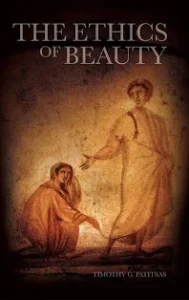 This begins a series of blogs based on Timothy Patisas’s book, The Ethics of Beauty. [1] Philosophers categorize the world into three domains: epistemology, the study of what we can know about the nature of truth (The True); ethics, the examination of the nature of goodness and how we should act (The Good); and aesthetics, the exploration of beauty (Beauty). Western civilization has tended to emphasize truth and what we can know, and it has treated the good and the beautiful as secondary characteristics. The position taken in the ethics of beauty is that this is wrong-headed.
This begins a series of blogs based on Timothy Patisas’s book, The Ethics of Beauty. [1] Philosophers categorize the world into three domains: epistemology, the study of what we can know about the nature of truth (The True); ethics, the examination of the nature of goodness and how we should act (The Good); and aesthetics, the exploration of beauty (Beauty). Western civilization has tended to emphasize truth and what we can know, and it has treated the good and the beautiful as secondary characteristics. The position taken in the ethics of beauty is that this is wrong-headed. When I’m in Austin, Texas, I have the opportunity to visit a rapidly growing, vital Eastern Orthodox congregation. My wife and I are not Orthodox, and getting used to their worship took us a while. Nevertheless, having been to several worship services by now, we’ve learned that some things the Reformers criticized about Orthodoxy are subject to question. For example, when you enter an Orthodox church, you’re surrounded by icons of Christ, Mary, his mother, the apostles, and the church saints. These icons are beautiful. Much of the service is sung in a kind of rhythmic chanting. The responses are beautiful. The entire liturgy of the service is designed to create a sense of the holiness of God in his transcendent beauty. Instead of emphasizing the Cross and the sacrifice of Christ, the focus is placed upon the Cross and the Resurrection of Christ. In other words, the beauty of the resurrected Christ sits at the center of the service. In other words, the orthodox worship service takes a Beauty First approach to God.
When I’m in Austin, Texas, I have the opportunity to visit a rapidly growing, vital Eastern Orthodox congregation. My wife and I are not Orthodox, and getting used to their worship took us a while. Nevertheless, having been to several worship services by now, we’ve learned that some things the Reformers criticized about Orthodoxy are subject to question. For example, when you enter an Orthodox church, you’re surrounded by icons of Christ, Mary, his mother, the apostles, and the church saints. These icons are beautiful. Much of the service is sung in a kind of rhythmic chanting. The responses are beautiful. The entire liturgy of the service is designed to create a sense of the holiness of God in his transcendent beauty. Instead of emphasizing the Cross and the sacrifice of Christ, the focus is placed upon the Cross and the Resurrection of Christ. In other words, the beauty of the resurrected Christ sits at the center of the service. In other words, the orthodox worship service takes a Beauty First approach to God.
